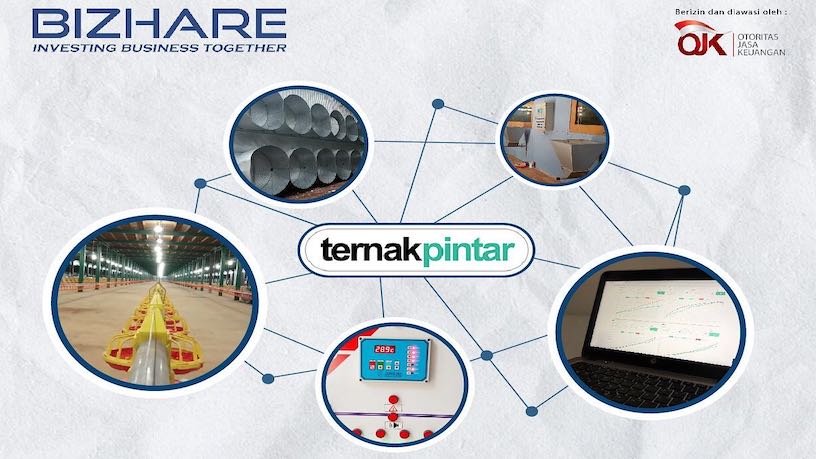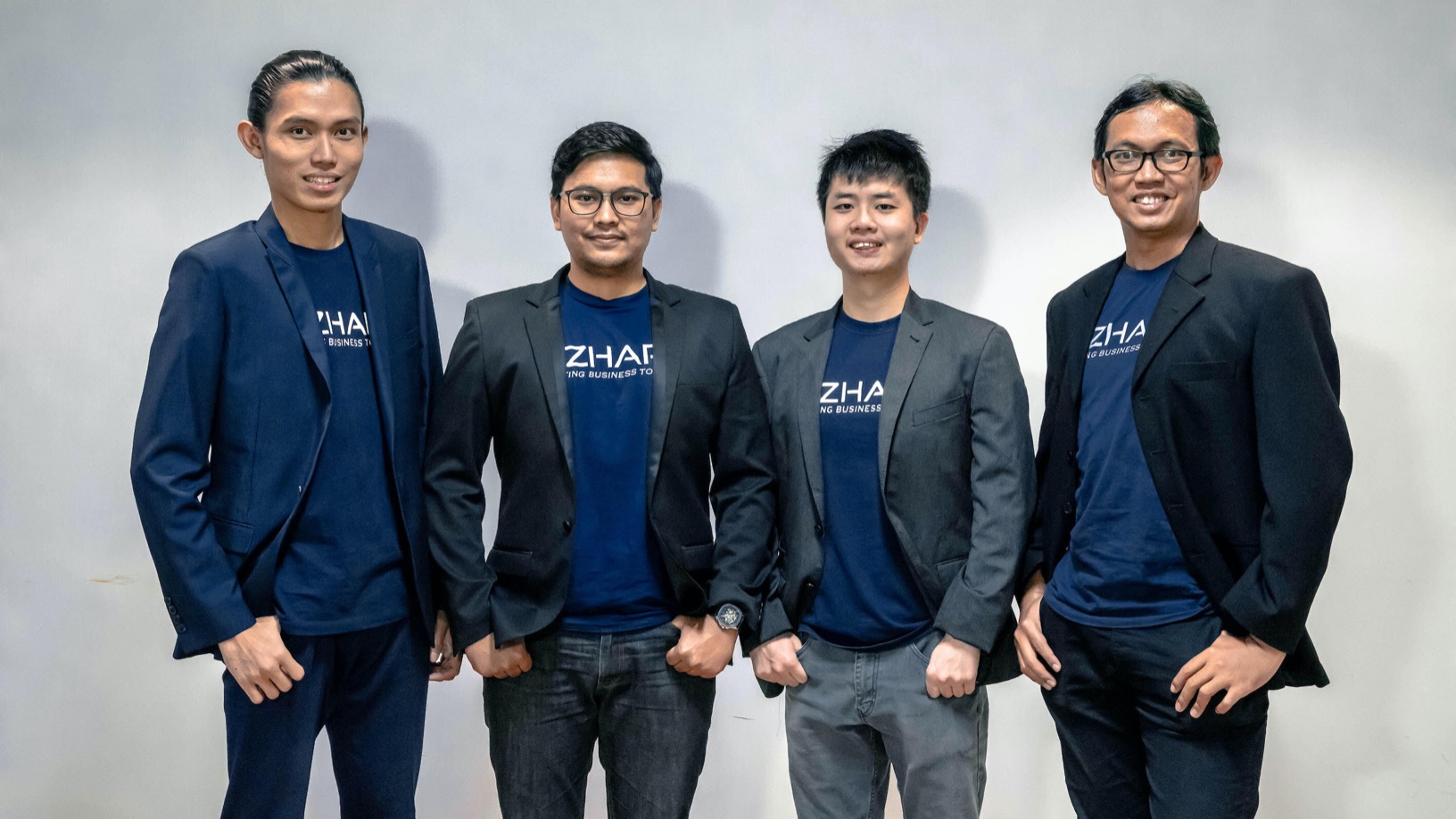Indonesian equity crowdfunding (ECF) platform Bizhare achieved significant growth milestones throughout 2020, with 55,000 registered investors and 45 share-issuing companies. The company also opened secondary trading for shares in three companies, providing an exit opportunity for investors.
Speaking to CompassList in an online interview, Bizhare CEO and founder Heinrich Vincent said that between 40% and 50% of registered users are actively investing in the featured businesses, which include convenience stores, F&B franchise outlets and some farming-related small enterprises.
“There’s definitely increased interest in investing,” Vincent said, pointing to the high number of transactions in the Indonesian stock exchange. Accordingly, Bizhare has lowered the minimum investment amount from IDR 5m to IDR 500,000 to accommodate the preferences of new investors.
Since CompassList last spoke to Bizhare in early 2020, the company has become a partner of the Indonesia Central Securities Depository (KSEI), the central custodian for securities transactions. The partnership, since April 2020, has allowed for easy settlement of secondary trading within Bizhare, which began this February.
Bizhare also raised an undisclosed amount of pre-Series A funding in October 2020. A Series A round is set to be announced by the end of 2021. The company is looking to intensify its marketing efforts and have 300 companies raise capital on the platform by the end of this year.
IDR 1bn secondary trade
Bizhare opened its secondary market for the first time from February 1–12, featuring three companies that have operated for at least one year since their fundraising. By February 9, when CompassList spoke with Vincent, the platform had facilitated IDR 1bn worth of secondary trade. Bizhare plans to reopen the secondary trading platform again in June or July this year, as, under ECF regulations, they are only allowed to do so twice a year.
Although a secondary trading market is not mandatory, Bizhare did so to provide more options for investors and SMEs. “For investors, a secondary market provides an exit opportunity and improves the liquidity of the investment," Vincent said. "For companies, there is a potential for the valuation to rise, though of course there’s a risk of a correction."
None of the companies that raised funds through Bizhare closed during the pandemic
The KSEI partnership also facilitates investment and trade within Bizhare’s platform. Current regulations require ECF platforms and the companies raising funds through them to deposit the shares with a custodian entity, such as the KSEI. Bizhare’s partnership with KSEI enables scripless trading of shares and gives it more flexibility.
“For example, the names of the investors would previously be written on the establishment charter, which means a lot of work needs to be done at the notary’s office,” Vincent said. This also limited the number of shareholders to 300 persons, which is the limit for privately held companies. Any change in shareholding would have to be reflected in the company charter.
With the KSEI partnership, equity sold through crowdfunding is grouped together and called “public ownership” and the names of public shareholders are not written. This allows secondary trading of shares without changing the company charter and effectively removes the 300-shareholder limit for equity crowdfunding as long as the amount raised within a 12-month period is less than IDR 10bn.
Only selected projects
To lower the minimum investment amount and attract new investors, Bizhare used stock splits to lower the price of individual shares. The minimum amount of shares each person must purchase depends on the predicted risk appetite for a certain type of business.
“If we believe that investors are willing to invest IDR 500,000 in a business, we set the minimum purchase to 10 shares at IDR 50,000 each,” Vincent explained. “[By lowering the minimum investment], we encourage them to invest more often at ticket sizes they can accept.”

More SMEs have applied for fundraising through alternative sources such as P2P lending and ECF platforms because banks are trying to avoid bad debt by reducing the amount of loans they provide to small enterprises.
Although Bizhare wants to help SMEs get the financing they need, the company carefully selects only the best businesses for investors. Since Bizhare was established in 2018, it has received about 2,000 crowdfunding applications, but only 45 investment projects made it to the platform.
“We don’t want to offer an investment into sick businesses that won’t recover despite getting a fund injection,” Vincent said. “What we are doing is giving a boost to businesses that are doing well so they can thrive even more.”
Top performer awards
Vincent said that none of the companies that raised funds through Bizhare closed during the pandemic. On the other hand, some are performing better than pre-Covid because customers are shopping at stores closer to their homes.
For example, Lamak Coffee, a local coffee shop business in West Sumatra, which had three outlets, added two more after it raised capital on Bizhare’s platform. “We always look for local businesses that serve basic needs, because they are less affected by the pandemic,” Vincent said.
To acknowledge and encourage the top performers on its platform, Bizhare gave awards to three companies in December 2020. One of those companies, which operates a hamburger franchise outlet, received an award for being the “most cooperative” business. “They were very receptive to our suggestions to improve the business, by introducing ready-to-cook meals and focusing on deliveries,” Vincent said.
It’s a growing industry and more competitors will appear
Another company, which operates an Alfamart convenience store, raised IDR 990m in just 31 seconds, earning it an award for being the fastest fundraiser. The last of the three companies, which operates an Indomaret outlet (a rival of Alfamart), received an award for best business performance for outstanding profits and promotional activities.
“We always encourage the companies to perform well, provide complete financial reports and become attractive to potential shareholders,” Vincent said. ”By giving these awards, we try to develop a healthy ecosystem where SMEs will compete to perform better.”
Mobile app by year-end
Bizhare is preparing to enable securities crowdfunding on its platform, following new regulations for such schemes in December 2020 by the Financial Services Authority (OJK). SMEs are now allowed to issue bond certificates and its sharia-compliant equivalent “sukuk” on ECF platforms. “These fundraising methods expand the choices for SMEs that do not want to issue shares but who need funding to expand their businesses,” Vincent said.
To support these new developments and boost its growth, Bizhare plans to raise a Series A round in the final quarter of 2021. “The [Series A] funds will be used to improve our technology platform by automating processes that lead up to SMEs raising capital on our platform and by accelerating the risk scoring process."
Bizhare also plans to intensify marketing efforts to bring 300 companies on its platform by the end of the year and launch a mobile app for investors. Previously, Bizhare raised a sub-$1m pre-Series A funding in October 2020. Vincent declined to reveal the exact amount of funding or the identities of the investors.
To date, there are four licensed ECF platforms in Indonesia: Bizhare and Santara, which focus on retail and local businesses, CrowdDana, which features property investments, and LandX, which offers investments in both SMEs and property. LandX was the latest to receive its license in December 2020.
The OJK said in January 2021 that 19 companies had applied for ECF licenses and the agency was expecting more to follow. “With more platforms [in the market], investors will become more familiar with the business model and they can choose the best platform for their needs,” Vincent said, welcoming the competition.
“It’s a growing industry and we expect more competitors will appear.”














